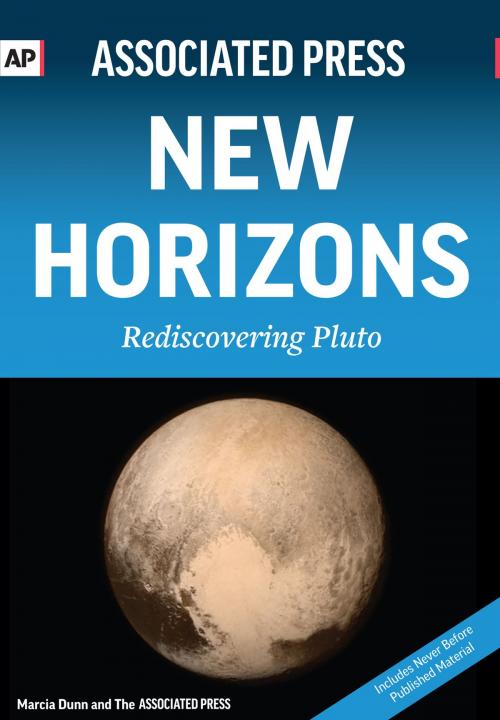| Author: | Associated Press | ISBN: | 9781633532427 |
| Publisher: | Mango Media | Publication: | March 5, 2016 |
| Imprint: | AP Editions | Language: | English |
| Author: | Associated Press |
| ISBN: | 9781633532427 |
| Publisher: | Mango Media |
| Publication: | March 5, 2016 |
| Imprint: | AP Editions |
| Language: | English |
Mankind's first close-up look at Pluto did not disappoint: The pictures showed ice mountains about as high as the Rockies and chasms on its big moon Charon that appear six times deeper than the Grand Canyon. Especially astonishing to scientists was the total absence of impact craters in a zoom-in shot of one otherwise rugged slice of Pluto. That suggests that Pluto is not the dead ice ball many people think, but is instead geologically active even now, its surface sculpted not by collisions with cosmic debris but by its internal heat. Breathtaking in their clarity, the long-awaited images were obtained by NASA's New Horizons, the unmanned spacecraft that paid a history-making flyby visit to the dwarf planet on July 14, 2015 after a journey of 9½ years and 3 billion miles. Experience the voyage to Pluto and rediscover our solar system through the photographs and reporting of The Associated Press.
Mankind's first close-up look at Pluto did not disappoint: The pictures showed ice mountains about as high as the Rockies and chasms on its big moon Charon that appear six times deeper than the Grand Canyon. Especially astonishing to scientists was the total absence of impact craters in a zoom-in shot of one otherwise rugged slice of Pluto. That suggests that Pluto is not the dead ice ball many people think, but is instead geologically active even now, its surface sculpted not by collisions with cosmic debris but by its internal heat. Breathtaking in their clarity, the long-awaited images were obtained by NASA's New Horizons, the unmanned spacecraft that paid a history-making flyby visit to the dwarf planet on July 14, 2015 after a journey of 9½ years and 3 billion miles. Experience the voyage to Pluto and rediscover our solar system through the photographs and reporting of The Associated Press.















